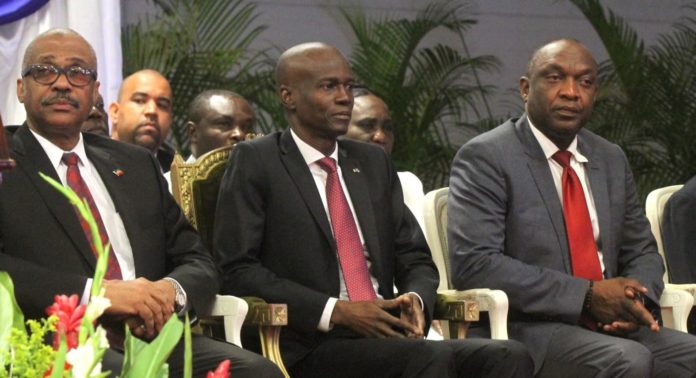
PORT-AU-PRINCE, Haiti (sentinel.ht) – The administration of President Jovenel Moïse and Prime Minister Jack Guy Lafontant has signed $123 million in contracts with three Haitian companies without following established procedures and under suspicious circumstances. Troubling was that there was no bidding in the process to award the contracts.
The private companies – Auto Plaza SA, HAYTRAC (Haytian Tractor & Equipment Co. SA), and Automeca (Auto and Mécanique SA) – were given these contracts to purchase 500 construction vehicles although none are manufacturers of such machinery.
According to Central Plateau Senator Rony Célestin, there was no call for tenders.
The government entity which manages heavy equipment, the National Equipment Center (CNE), appears not to have been consulted or involved at all.
According to the Minister of the Economy and Finance, “it is [the Ministries of Public Works, Agriculture and Defense] that will use this equipment first, but some will be in use at the level of the army because military professionals will be at the forefront of climate emergencies. Let us not forget that some of them are military engineering professionals who will help open up areas hit by natural disasters.”
According to Central Plateau Senator Rony Célestin, there was no call for tenders. And questioned on this aspect at the Nouvelliste, Minister Salomon simply indicated that he was “not against the acquisition of equipment but that it must be done according to standards.”
However, he states that “the contracts were approved by both the National Procurement Board (CNMP) and the Superior Court of Audit and Administrative Court (CSC / CA).”
The big unanswered question remains the procedure used by the administration to sign these contracts. The tendering process (national /international) calls for, among other things, equal opportunities between suppliers of the market, competition that diversifies offers, and the possibility of choosing the most advantageous offer for the State. These contracts were probably signed during the state of emergency, a process praised for its celerity but vilified for its opacity.
An earlier version of this article was published on Sentinel.ht.









